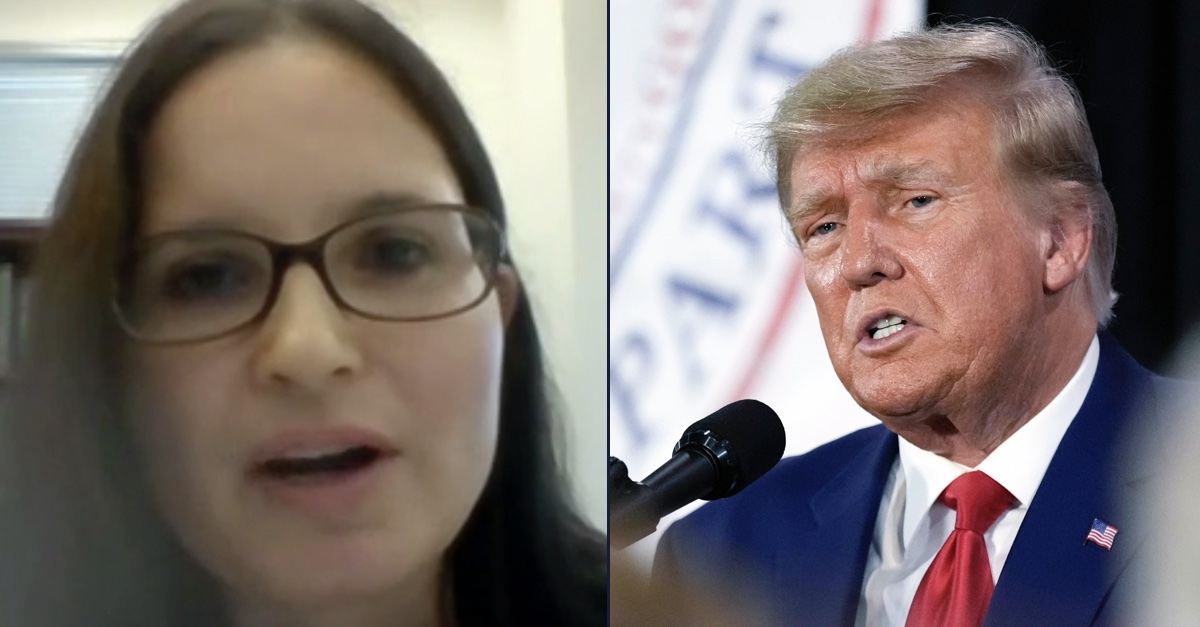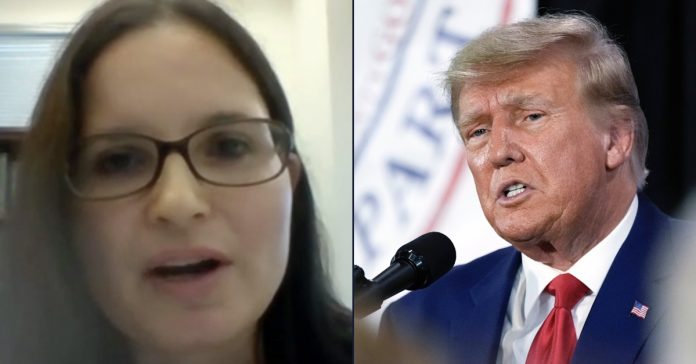
Judge Aileen Cannon (Senate Judiciary Committee via AP), Donald Trump visits Cedar Rapids, Iowa, in July 2023 (AP Photo/Charlie Neibergall, File)
The judge overseeing former President Donald Trump’s Mar-a-Lago classified documents case rejected his demand to delay pretrial deadlines.
In her paperless order filed on Thursday denying the defendants’ motion, U.S. District Judge Aileen Cannon says she’d consider late-filed matters if they can show they “justify additional pre-trial briefing.”
“The deadline to file pre-trial motions (as distinct from motions in limine seeking the exclusion of specific evidence/arguments from being presented during trial) remains February 22, 2024,” the docket reads. “However, to the extent the Court’s resolution of the pending Motions to Compel Discovery 262 yields a specified need of any party to supplement previously filed pre-trial motions and/or to file evidentiary motions that could not reasonably have been filed by February 22, 2024, the Court will consider such arguments as appropriate, but only upon a particularized and timely showing that events post-dating February 22, 2024, clearly justify additional pre-trial briefing.”
Lawyers for Trump had filed a motion to adjourn certain pretrial motion deadlines last week in the Florida case over the former president’s allegedly wrongful retention of documents in his Mar-a-Lago home. They asked U.S. District Judge Aileen Cannon, a Trump appointee, to allow Trump, along with co-defendants Waltine Nauta and Carlos De Oliveira, to file evidentiary motions within one month of Cannon’s decision on motions to compel discovery currently before her.
Cannon, in her ruling issued Thursday, kept the deadline date at Feb. 22.
This latest ruling comes amid a battle over discovery documents and whether the identities of witnesses and investigators in those documents should be unsealed and made public.
Cannon recently denied requests from prosecutors to seal or redact some of the materials they have already given to Trump’s lawyers and that Trump’s lawyers, in turn, attached to their motions on the federal docket in Florida.
Last Thursday, special counsel Jack Smith called Cannon out, saying her previous order to unseal redacted discovery records in the impending trial would needlessly expose witnesses and potentially trigger intimidation and threats — including to her.
In a 22-page motion for reconsideration and stay, Smith laced into the judge as he attempted to fight off public exposure to a swath of unredacted documents before the scheduled May 20 trial date.
“That discovery material, if publicly docketed in unredacted form as the Court has ordered, would disclose the identities of numerous potential witnesses, along with the substance of the statements they made to the FBI or the grand jury, exposing them to significant and immediate risks of threats, intimidation, and harassment, as has already happened to witnesses, law enforcement agents, judicial officers, and Department of Justice employees whose identities have been disclosed in cases in which defendant Trump is involved,” Smith wrote.
In response, Cannon issued a paperless order that Trump’s lawyers now have until Feb. 23 to respond to Smith’s motion for reconsideration.
In a scathing and separate filing opposing Trump’s request for delays, also filed Thursday, prosecutors urged Cannon not to let Trump’s lawyers intentionally dawdle on filing pretrial motions as a way to continually delay facing a jury. Prosecutors noted in that brief that Trump has said he plans to file a motion to dismiss the Florida indictment based on “presidential immunity.”
This scheme has so far been unsuccessful in other venues.
Law&Crime’s Brandi Buchman contributed to this report.
Have a tip we should know? [email protected]

